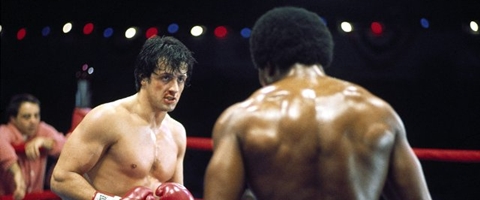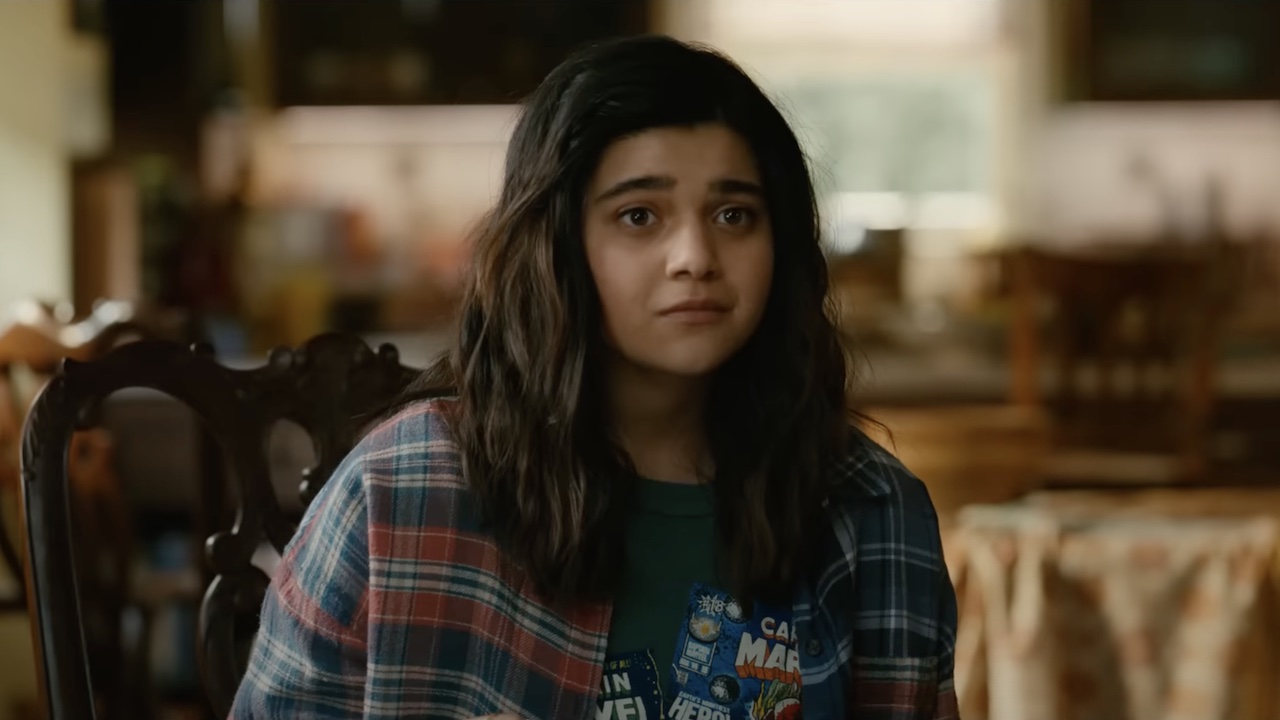After 35 years and countless imitators, how does the original Rocky stand up? Yours truly, having somehow never seen the original Rocky despite nearly that many years of moviegoing, sits down with Mr. Balboa for the first time to see if the old guy's still got the moves. So yeah, Rocky is one of "those" movies. The kind everyone just assumes everyone else has seen. The kind that everybody really ought to see. And the kind that, for whatever reason, I never got around to. Until now. To my credit, it came out two years before I was born. For most of my formative years, I was far more interested in Star Wars trivia than "some stupid boxer movie." Even through almost a decade of writing about film and television, there was always something higher priority in the queue. So when we received a screener of the new Blu-ray Book edition of Rocky, I knew it was time to take the plunge. And surprisingly, it was not the movie I expected.
On the surface, Rocky seems dated. Not because of its era or any of the trappings of its production, but simply because it dips into familiar sports-movie tropes we've seen a thousand times. Until, of course, you realize that many of those clichés wouldn't be so familiar if Rocky hadn't helped cement them. We've got the down-on-his-luck long shot. We've got the training montages. We've got the fight (game/match/championship) that could change his life (as a friend of mine once asked, "Doesn't anybody in boxing movies box just because they really enjoy it?"). Once you stop looking through the lens of all the imitators that came later, you find a solid sports-underdog movie that is at least as interested in being a character drama.
Sports movies are most effective in the way they viscerally tweak our emotions. Even people who couldn't care less about sports will find their heart racing and then uplifted by the last few minutes of, say, Miracle. Sports movies give us all the excitement and investment of live sports, but all wrapped up in a tidy, perfect Hollywood package. The iconic shot of Rocky running up the steps of the Philadelphia Museum of Art is unforgettable, but would it be as powerful without that music playing behind it?
Despite being adept at the language of the genre, Rocky is most notable for the way it defies expectations. [Spoilers, assuming you've somehow managed to avoid being spoiled for three and a half decades.] If there's one area where sports movies are at their most clichéd, it's the finale, where the hard-luck team or old-timer looking for one last shot at glory overcomes the odds and wins the day. Rocky doesn't give us that. Instead, Rocky's victory is much smaller, more personal. All he wants to do is go the distance, and that's what he does. A lesser script would have given Rocky that last-minute, slow-motion knockout punch that sent Apollo Creed to the mat. And that might have been emotionally satisfying, but would that ending have made the movie the classic it's become? I don't think so.
But, as I said, Rocky isn't just your typical sports movie. It's just as interested in the characters as the competition, and that ending is representative of everything that comes before. It's about regular people, the people who may not conquer the world, but who just keep getting back up every time they're knocked down. To borrow a quote from another movie about guys pummeling each other, "We've all been raised on television to believe that one day we'd all be millionaires, and movie gods, and rock stars. But we won't." Rocky knows he can't defeat the champ. He just wants to go the distance. That might not make for the usual Hollywood ending, but it's something with which most of us can identify. The best most of us can hope for is to go the distance. But sometimes that simple act of will, the determination to get up off the mat and keep standing, is a victory in itself. In theory, I like these "Blu-ray book" editions. The accompanying essays usually provide come cool insights into the movies they accompany, and it's cheaper than throwing together a new making-of segment. However, I'm not crazy about the trade-off being a bare-bones edition of the movie, which is exactly what we get with this release of Rocky. There's not a single bonus feature to be found on the disc, which boggles my mind for a movie as ingrained in the pop culture as Rocky is. Surely we could have at least gotten a retrospective feature of some sort.
The book itself contains two short essays bookending bios for the cast and crew. "Stallone: Going the Distance" takes a look at the origins of Rocky, and how the character paralleled Stallone's own hard-luck beginnings. This is easily the more interesting of the two pieces, but at only three full pages of text (and accompanying photos), it's hardly comprehensive. "Anatomy of a Scene: The Final Fight" is more or less a play-by-play of the climactic tussle, with commentary on how it reflects theme. Both of these are interesting, but would have been a lot more interesting as short featurettes.
The Blu-ray book edition of Rocky is well put together and features a good transfer of the film, but there's not much here to merit a new purchase if you already own one of the earlier Blu-ray releases.
Joy Behar Thinks The View Hosts Right Now Are Very Nice, But Says That Hasn't Been True All '28 Years' Of The Show
While We Wait For Iman Vellani’s Ms. Marvel Return, I’m Jazzed She’s Joining An Upcoming Movie’s All-Star Cast That Includes Seth Rogen, Woody Harrelson And More
St. Denis Medical Boss And Star Share The Story Behind Josh Lawson's Wild Dance Number, And I'm Sold Ahead Of The Finale











